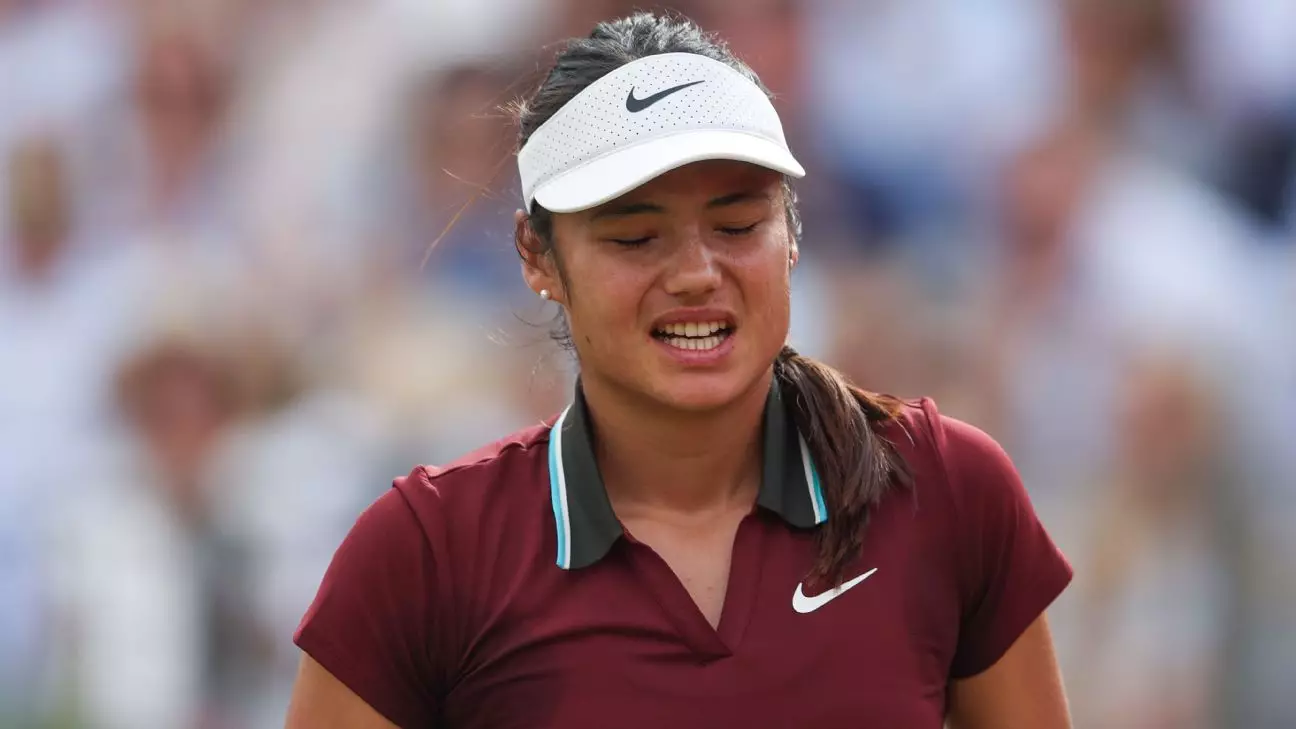Emma Raducanu, the 2021 US Open champion, finds herself at yet another crossroads as she opts out of the Berlin Open due to persistent back issues. Ranked No. 37 in the world, her withdrawal from this pivotal grass-court tournament raises eyebrows about her readiness for the prestigious Wimbledon event. This injury is not new; it’s an annoying shadow that has loomed over her performances since before the French Open. The severity of her condition became apparent during her recent quarterfinal at the Queen’s Club Championship when she required an off-court medical timeout against Olympic champion Zheng Qinwen. Despite her spirited efforts, Raducanu’s struggle was evident—her loss echoes a painful reminder that the physical toll of competitive tennis is often unrelenting.
Managing Expectations Amidst Disappointment
In the aftermath of her defeat, Raducanu expressed her dissatisfaction with her performance, highlighting a level of expectation that seems to weigh heavily on her shoulders. “I’m probably feeling that,” she remarked, focusing on both her physical limitations and the emotional rollercoaster of competing at this elite level. This past match showcased her flair and tenacity, particularly when she surged ahead with a double break early in the second set. Yet, as is often the case in elite sports, talent alone is insufficient. The experience and strength of seasoned opponents like Zheng reveal the growing divide in Raducanu’s current form versus her ambitions for greatness.
The Fitness Factor: A Climb Towards Elite Status
One cannot overlook the broader implications of Raducanu’s ongoing struggle with injury. The young athlete candidly acknowledged that the pace of the tour and the high frequency of matches may have exacerbated her back issues. She highlighted the importance of careful management, stating, “I know it’s something that’s very annoying and needs proper and careful management.” This introspection paints a picture of a dedicated player who is keenly aware of her physical limitations but also determined to adapt and overcome. Yet, the reality is daunting; her competitors are not only in peak physical condition but also have more time invested in training, creating an uphill battle for Raducanu.
A Competitive Landscape Awaits
With the Berlin Open drawing top-ranked competitors—including nine of the top ten women—Raducanu’s absence will be keenly felt. This grass-court event is crucial as players prepare for Wimbledon, which starts on June 30. The high-stakes nature of these tournaments cannot be understated, as they serve as crucial benchmarks for players’ aspirations. Raducanu’s journey is not just about personal triumphs but also about navigating a fiercely competitive landscape filled with formidable challengers who are relentless in their pursuit of success.
Raducanu’s determined spirit is admirable, yet it is equally important to recognize the need for a holistic approach to her training and recovery. Balancing mental fortitude with the physical demands of the sport will be vital in her quest to reclaim her elite status on the tennis court. Each setback can become a stepping stone, holding the potential to not only shape her future performances but also to redefine her resilience as a rising star in tennis.

